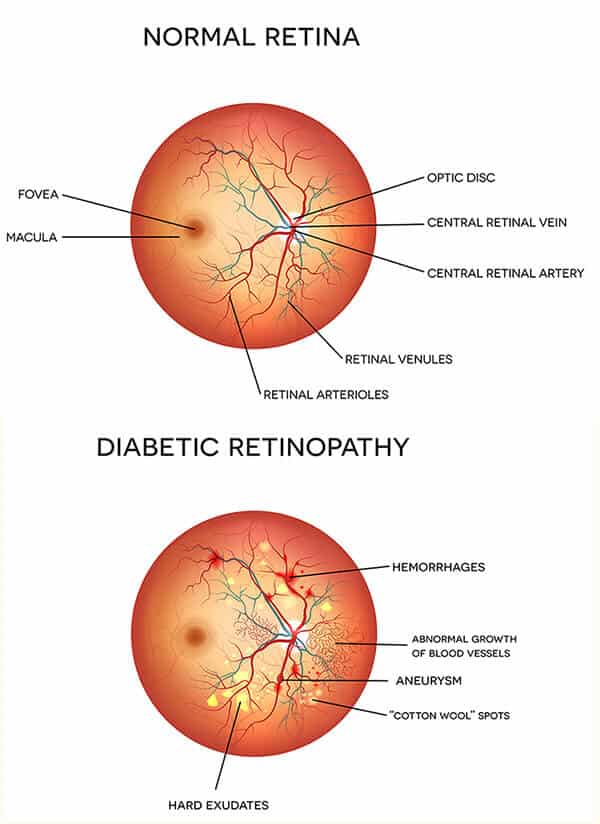Diabetic Eye Care
Diabetic Eye Care
Are you living with diabetes and concerned about the potential impact on your vision? Regular eye exams are the cornerstone of diabetic eye care, allowing for the early detection of diabetic retinopathy, macular edema, and other eye conditions.
Understanding Diabetic Eye Care: Overview, Risks, and Importance
Diabetes can have significant implications for eye health, as it increases the risk of developing various eye conditions, collectively known as diabetic eye disease. These conditions include diabetic retinopathy, diabetic macular edema, cataracts, and glaucoma. Without proper management and regular eye exams, diabetic eye disease can lead to vision impairment and even blindness.
Several factors contribute to the development and progression of diabetic eye disease, including:
- Poorly controlled blood sugar levels
- High blood pressure (hypertension)
- Elevated cholesterol levels
- Duration of diabetes
- Smoking
- Genetic predisposition
Individuals with diabetes are advised to undergo comprehensive eye exams at least once a year to detect and monitor any changes in ocular health.


Regular diabetic eye care is essential for several reasons:
- Early Detection: Diabetic eye exams can detect signs of diabetic retinopathy and other eye conditions in their early stages, when treatment is most effective in preventing vision loss.
- Monitoring Progression: Regular monitoring allows for timely intervention and management of diabetic eye disease, helping to slow down or prevent further damage to the eyes.
- Preventive Measures: In addition to eye exams, individuals with diabetes are encouraged to maintain optimal blood sugar levels, control blood pressure and cholesterol, and adopt a healthy lifestyle to reduce the risk of diabetic eye complications.
Frequently Asked Questions about Diabetic Eye Care
At All Eye Care, P.A., we’re committed to providing comprehensive diabetic eye care services to help you protect your vision and maintain ocular health. Schedule your appointment with Dr. Rugwani today and take proactive steps toward preserving your vision for years to come.

